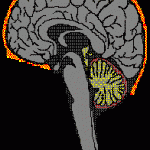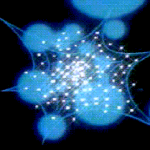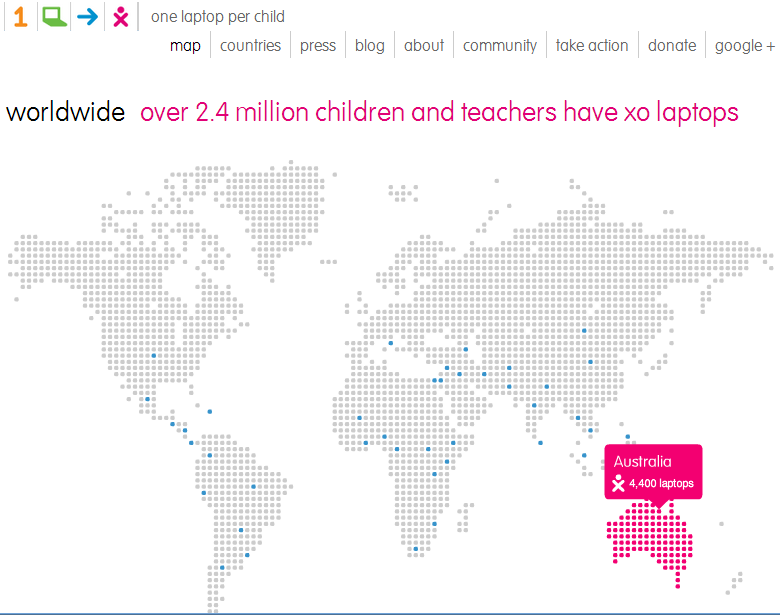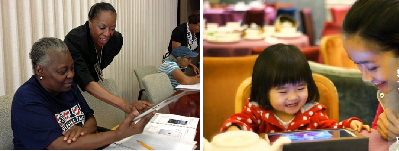28 Jul The Democratization of Knowledge
 Joe Roushar – July 2012
Joe Roushar – July 2012
Knowledge is Power
Knowledge is concentrated in too few people (Boyle 1996). People in privileged countries and classes have all they want. Many others don’t know what they don’t know. A huge project called One Laptop Per Child is seeking to remedy this one child at a time. This is one important step among many to democratize knowledge (see also Inefuku 2017).
The Global Digital Literacy Council has the charge to help ensure that people all over the world have the skills to access information on the so-called information Superhighway. The standard is intended to “define relevant skills and knowledge necessary to be ‘digitally literate’ in the world today. As technology changes, and the needs of workplace and academia evolve, it’s important that the standards for digital literacy keep pace with those changes” [GDLCouncil.org].
| Understanding Context Cross-Reference |
|---|
| Click on these Links to other posts and glossary/bibliography references |
|
|
|
| Prior Post | Next Post |
| Understanding Subtext | What is a Set: Multiple Meanings |
| Definitions | References |
| Knowledge ontology | Shakespeare Boyle 1996 |
| understanding intent | Dostoyevsky Google |
| computer context collapse | search engines WikiPedia |
In Washington, DC we see programs to get older adults online, and in Southern California more tablets are being used in schools to open up collaborative knowledge sharing to young kids. I propose that to make knowledge more accessible to the masses across geographies and demographies, we need more than standards and education: we need smarter software that doesn’t create barriers to knowledge through unfriendly and limiting applications. People and machines need to understand one another.
Knowledge is Power
 In my last post, I discussed how subtext, information that is in the speakers’ heads but doesn’t come out in their words, interferes with our ability to fully understand a person’s intent. I have alos posted on a related topic: context collapse. Do you understand everything you hear, for example the words “…quietus make with a bare bodkin?”. If not, Google it, because knowledge is power, and the more actionable knowledge you have, the mightier you become. Scientia potentia est. In some future utopian world, knowledge will be as available to all people as information is to many privileged people today.
In my last post, I discussed how subtext, information that is in the speakers’ heads but doesn’t come out in their words, interferes with our ability to fully understand a person’s intent. I have alos posted on a related topic: context collapse. Do you understand everything you hear, for example the words “…quietus make with a bare bodkin?”. If not, Google it, because knowledge is power, and the more actionable knowledge you have, the mightier you become. Scientia potentia est. In some future utopian world, knowledge will be as available to all people as information is to many privileged people today.
There was a day, not long ago, when many important fragments of knowledge were too hard to get. Wait! Is all important knowledge available to everyone now? With fabulous search engines and online dictionaries and encyclopedic sources such as WikiPedia, what is stopping everyone from knowing where to find everything? Today, I will not get into the dismaying lack of internet access to disadvantaged populations throughout the world. That’s a topic for another day. What I want to talk about today are the barriers to knowledge for those who do have access to the internet on demand through computers and mobile devices.
Fragments of Knowledge
Let’s assume for starters that knowledge comes in fragments. From this viewpoint (not the only possible viewpoint) a person’s knowledge consists of a large collection of fragments of knowledge that are somehow accessible based on connections to other knowledge. An orphan knowledge fragment, in this visualization, would be inaccessible or impossible to correctly interpret until a person creates mental associations that tie it to her or his body of knowledge. Here are some of the barriers:
- While knowledge proliferates on the internet through search and freely available content, barriers to knowledge are everywhere.
- The huge amount knowledge is too difficult to sort through and prioritize.
- False and sensational information proliferates along with the useful stuff (see a recent post).
- Education systems even in advanced countries fail to equip their students to handle the deluge.
- As language evolves, some gems of knowledge become inaccessible.
 As I’ve been reading “” I need to look up references in the text frequently to get the full context. Fuller understanding requires more complete context. I began this post with some opaque language from a favorite soliloquy because I wanted to suggest, today, that there are automated things we can do to make “the undiscovered country” less puzzling and frightening. Those things are being done piecemeal in a growing parade of mobile apps, many of them free. I propose that this is not the best answer because it exacerbates the knowledge glut with its ugly little brother: app glut. By enabling workflow software with ontological knowledge and processes to efficiently access it, the democratization of knowledge, at least for those who have the equipment to handle it, may come within our grasp. This is the main point of my work and the larger context of this blog. More on this to come.
As I’ve been reading “” I need to look up references in the text frequently to get the full context. Fuller understanding requires more complete context. I began this post with some opaque language from a favorite soliloquy because I wanted to suggest, today, that there are automated things we can do to make “the undiscovered country” less puzzling and frightening. Those things are being done piecemeal in a growing parade of mobile apps, many of them free. I propose that this is not the best answer because it exacerbates the knowledge glut with its ugly little brother: app glut. By enabling workflow software with ontological knowledge and processes to efficiently access it, the democratization of knowledge, at least for those who have the equipment to handle it, may come within our grasp. This is the main point of my work and the larger context of this blog. More on this to come.
My personal quest in life is to contribute to the democratization of knowledge by delivering knowledge apps that truly can understand your intent (i.e. read your mind) and deliver you the knowledge you seek. Eventually I want to deliver the same apps in every major language on the planet. Too much for one guy? Absolutely! Hopefully I’ll get help.
| Click below to look in each Understanding Context section |
|---|











